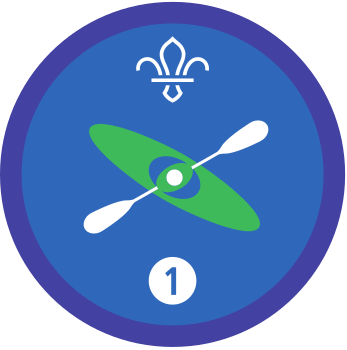
Advanced paddle sports
You’ll need
- Paddle sports equipment
Take your skills further with British Canoeing
These instructions have been adapted from the British Canoeing Personal Performance Awards. There are 12 different disciplines in which you can earn a Personal Performance Award, and three levels for each of these.
Work towards a Personal Performance AwardWhat you’ll learn
Paddling different watercraft can be a fantastic way to pick up new transferrable skills. Nailing the j-stroke in a canoe can help you to use it on a paddleboard in the future, while improving your efficiency in a touring kayak will help you be more effective on white water.
The awards will also build on your critical thinking and decision-making skills, helping to make you an independent paddler. Good decision-making often comes from experience, which you’ll get plenty of at this level.
Handy hints
- Choose carefully. Some disciplines will complement each other well and may even use some of the same equipment. Choosing ones that you have easy access to might make getting involved in the activity simpler.
- Take your time. Trying something new can be challenging and frustrating. Don’t expect to be an expert in a polo boat just because you’re handy with a canoe! Take your time and use your reflective skills to keep learning.
Safety
- Outdoor activities
You must have permission to use the location. Always check the weather forecast, and inform parents and carers of any change in venue.
- Heavy and awkward objects
Never lift or move heavy or awkward items alone. Ask for help or, if possible, break them down into smaller parts.
- Poles and long objects
Be careful when moving poles or long items. Take care if the ends are sharp. Have appropriate supervision for this activity.
- Adventure
This activity has specific rules and systems to make sure it’s managed safely. Take a look at adventure activities for more guidance.
- Water games and activities
Be careful when doing activities with, in, or near water. Check surfaces and reduce the risk of slipping where possible. Make sure you have appropriate supervision for this activity.
- Near water
Manage groups carefully when near water. The guidance on activities near water will help you to keep your group safe.
Guidance
Reflection
Trying a new sport or discipline can sometimes feel like starting from scratch. This can be frustrating and will usually take time, but if you use the reflection skills you’ve picked up along the way, you can really step up your future learning. Take the time to set goals before every session and think about what you’ve learnt after each one. Ask for feedback from those you paddle with and make sure to offer feedback to others. The better you get at reflection and self-reviewing, the faster you’ll learn.
The British Canoeing Personal Performance Awards each have three stages: regular, progressive and advanced. Working towards the upper stages will be a big challenge, but will demonstrate very high levels of skill.
Advanced paddlesports can often be adapted so more people can give it a go. Many centres have facilities that cater for people with additional needs and experienced instructors to help everyone achieve their goals. Get in touch with your local provider to chat through the needs of people in your group. Make sure you give them plenty of notice.
All Scout activities should be inclusive and accessible.
When you’ve mastered the regular stage of a paddlesports discipline, try the progressive stage. If you’ve mastered that, have a go at the advanced stage.
